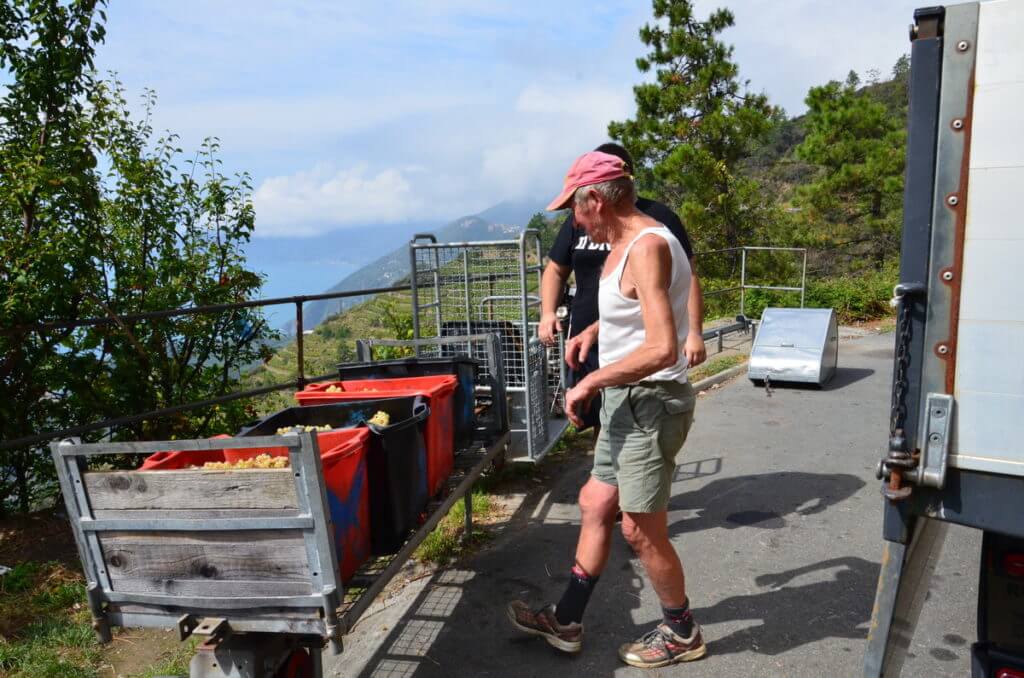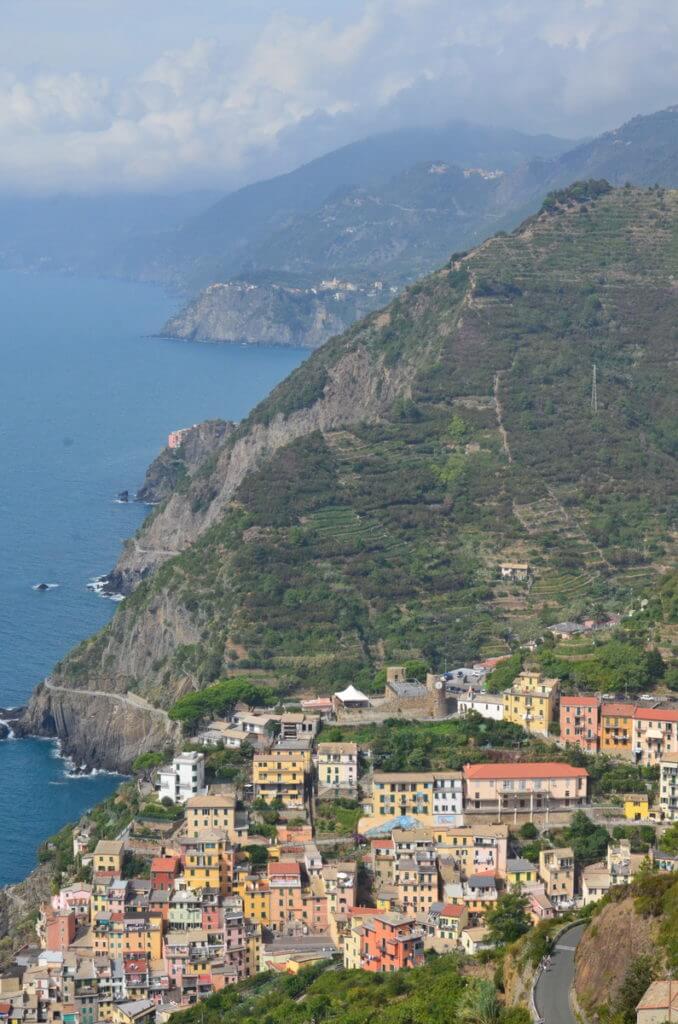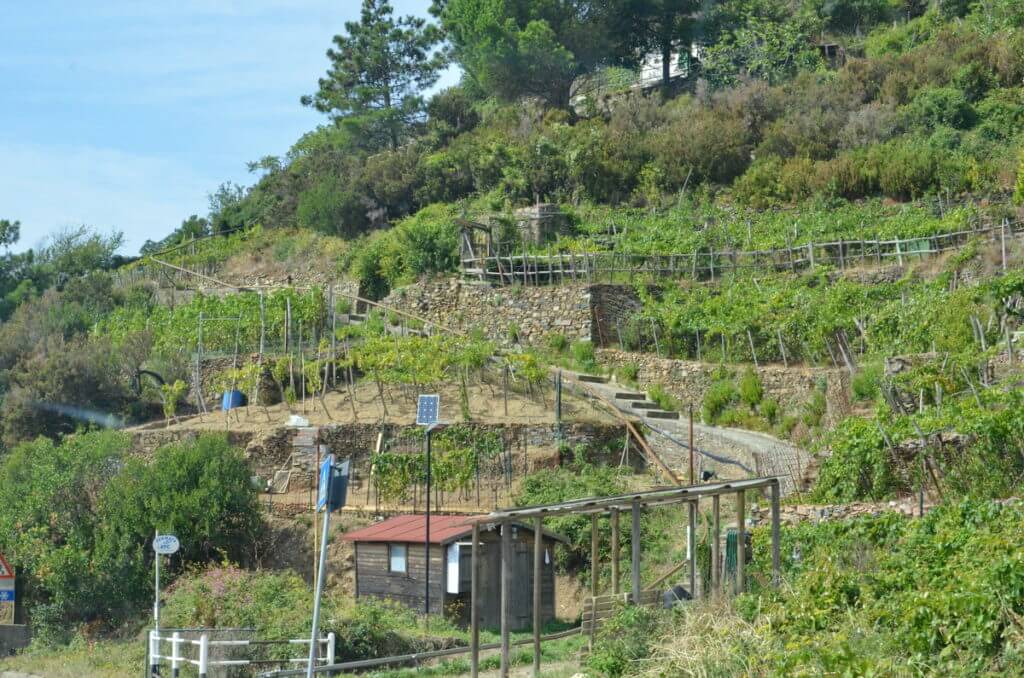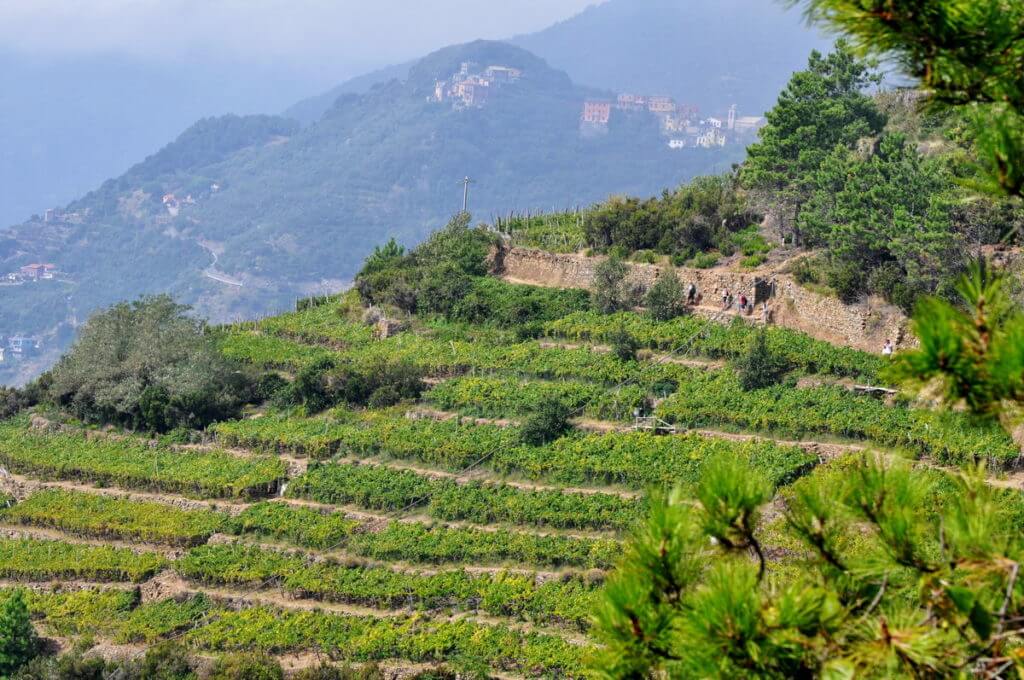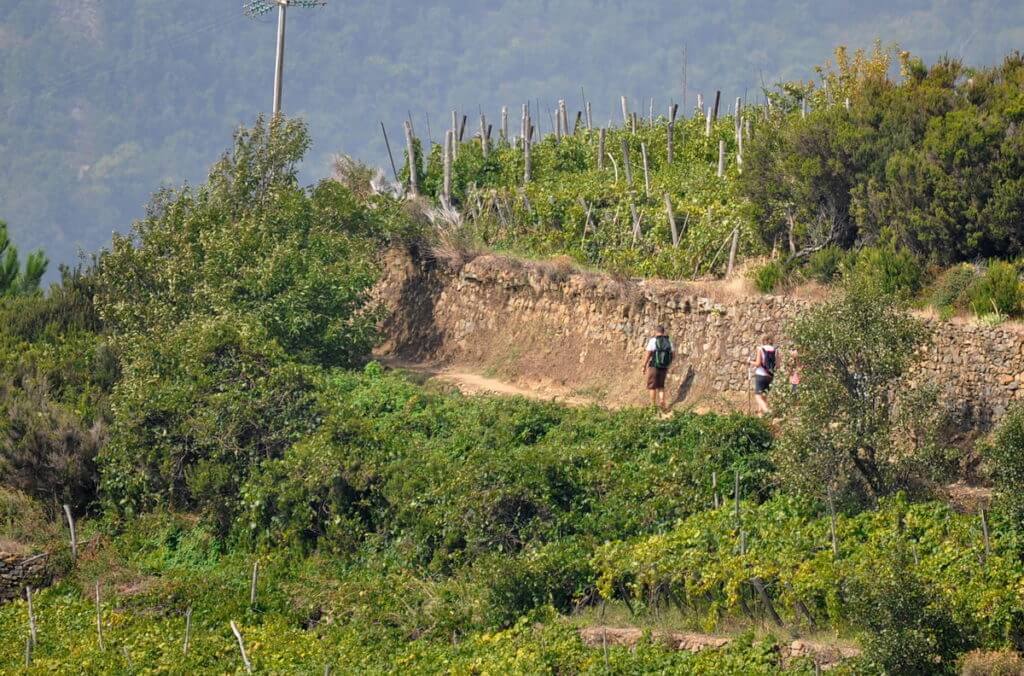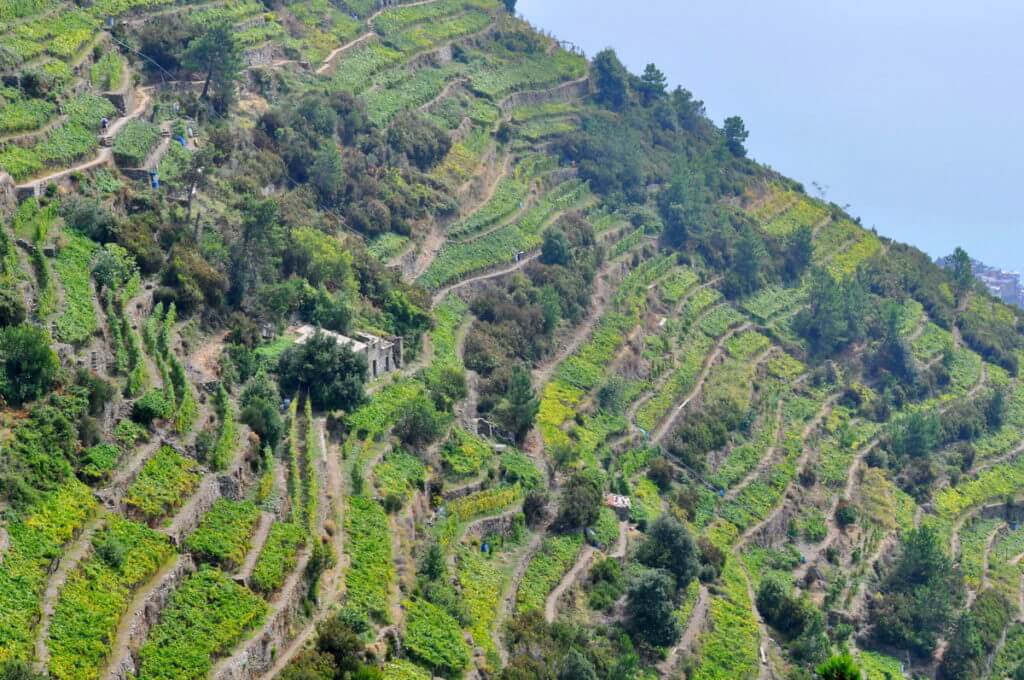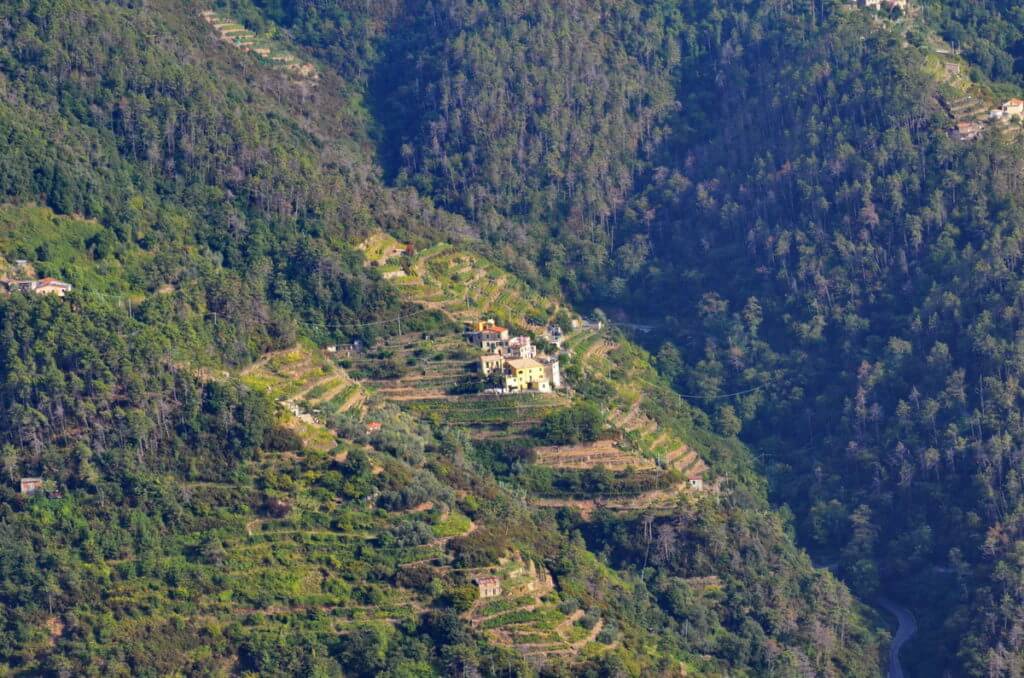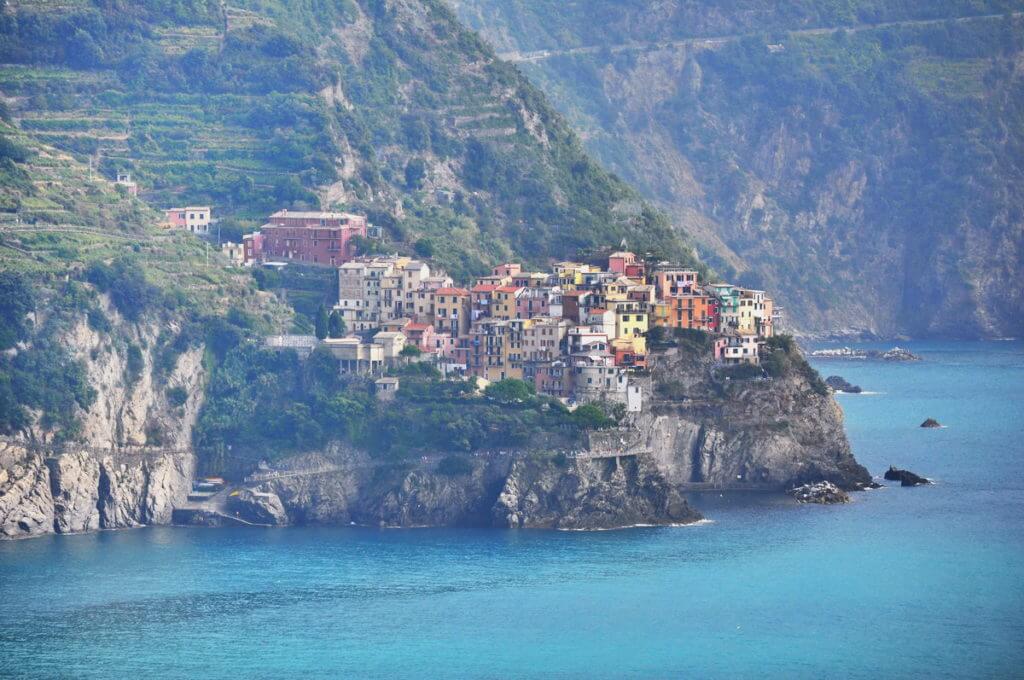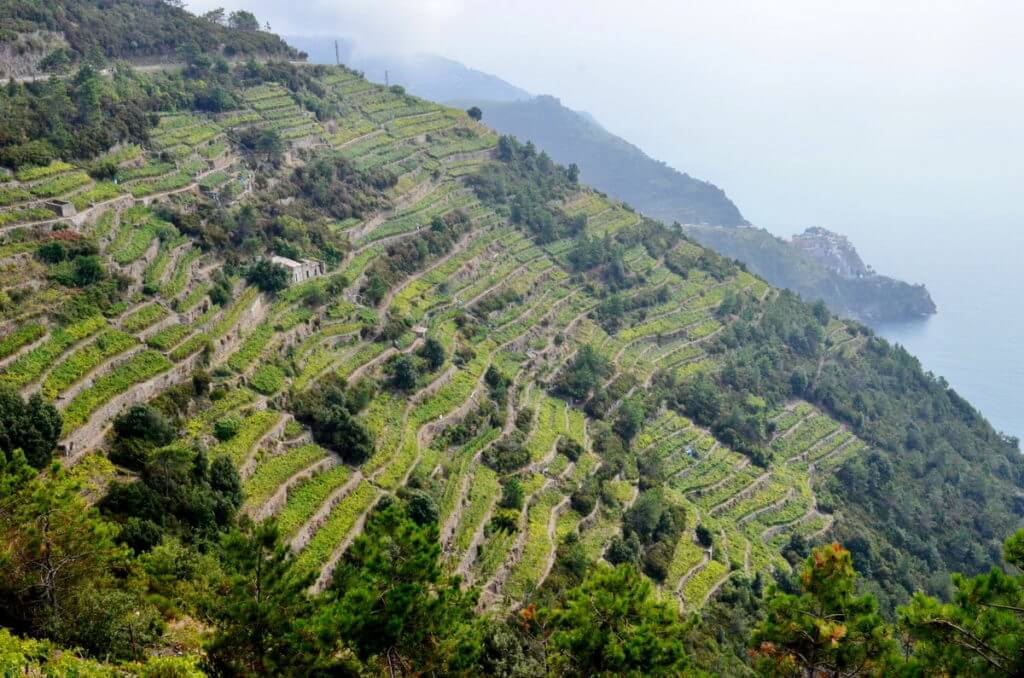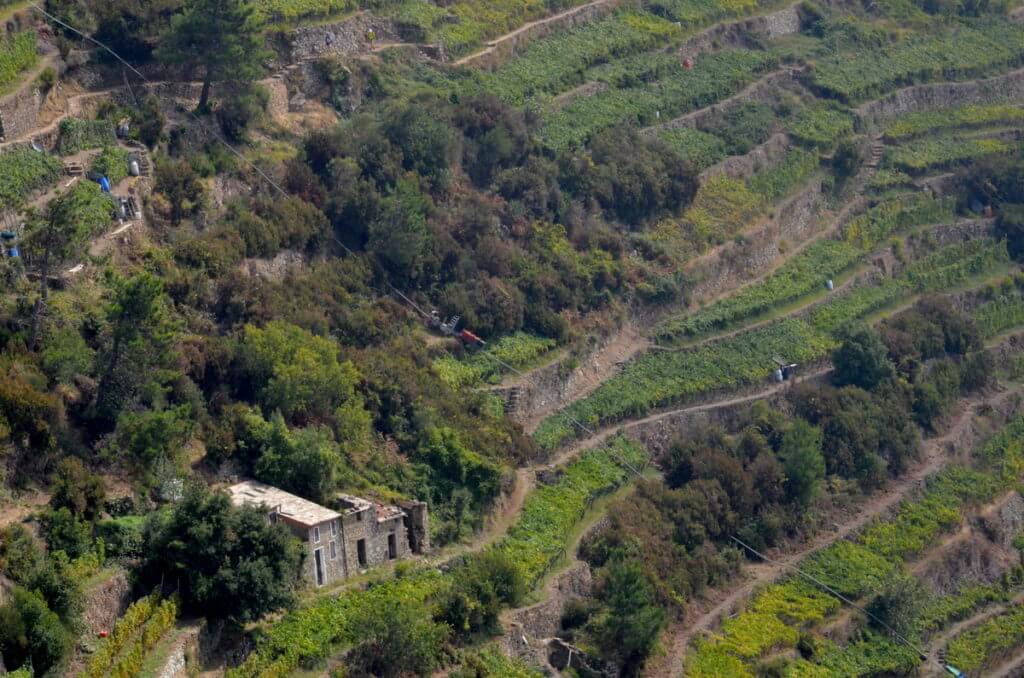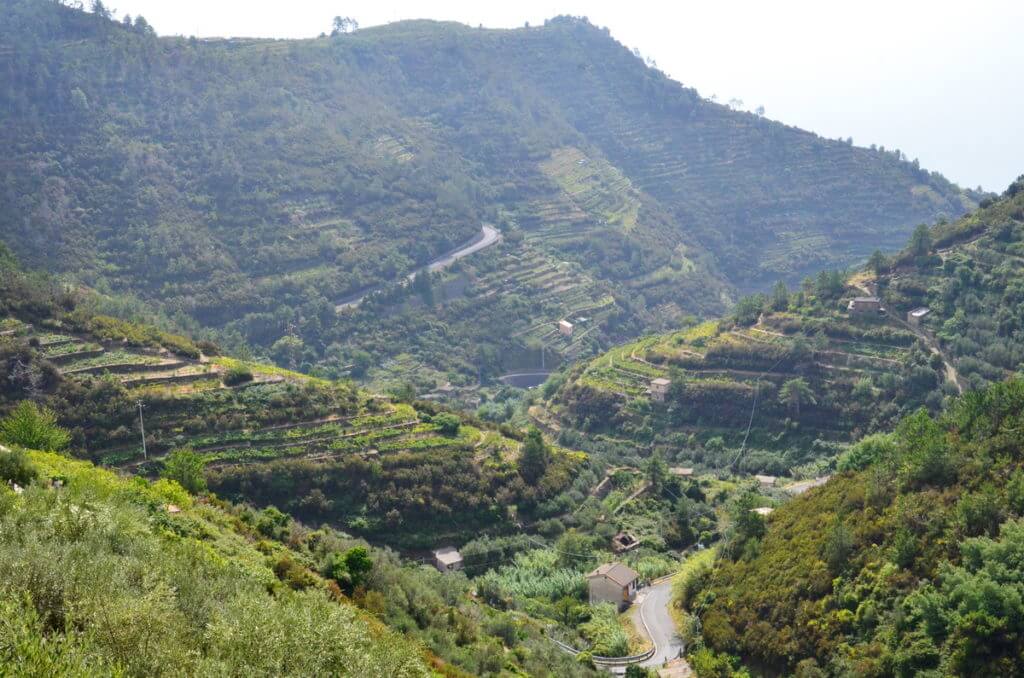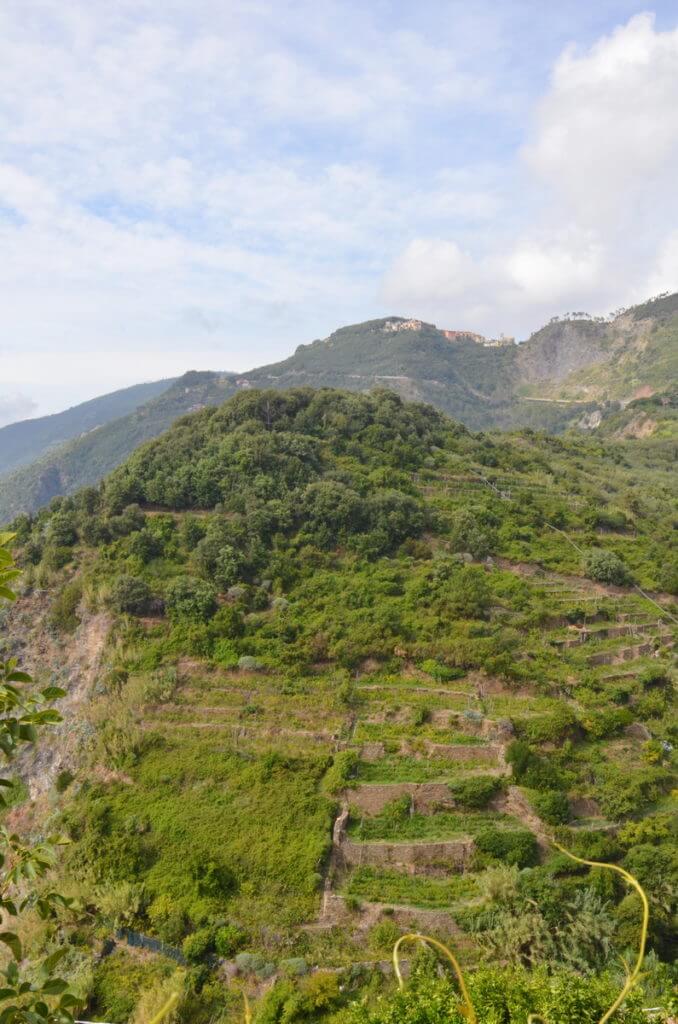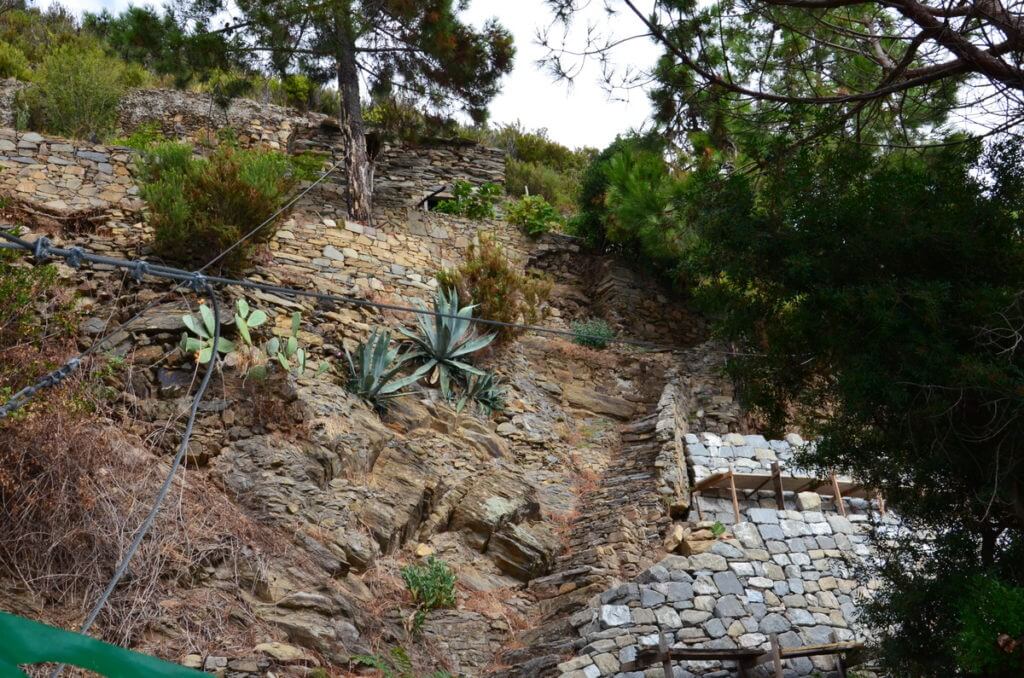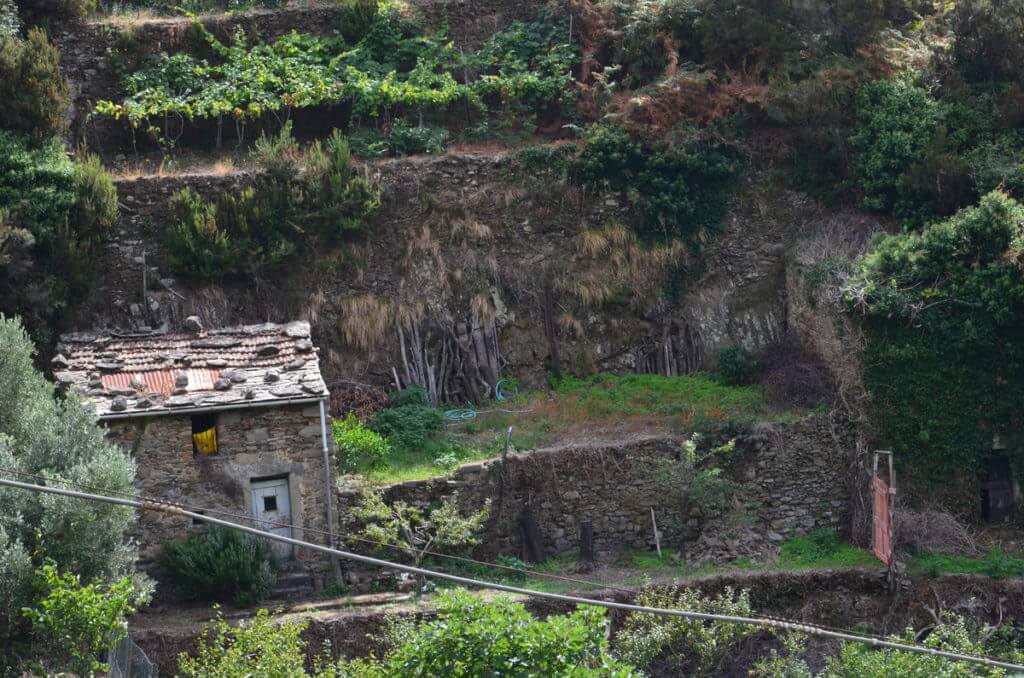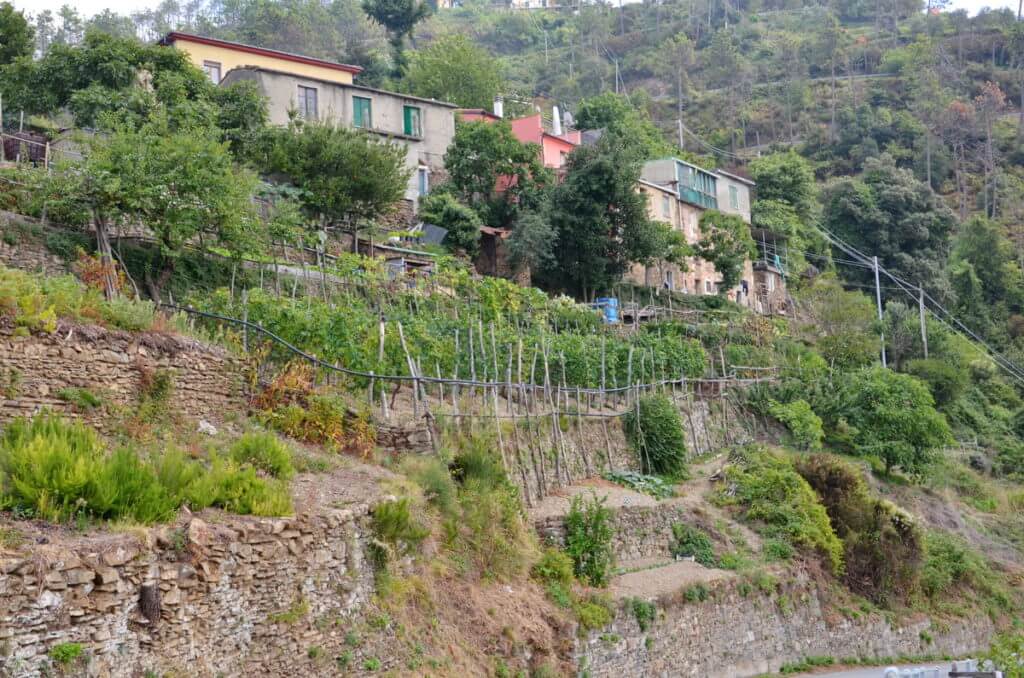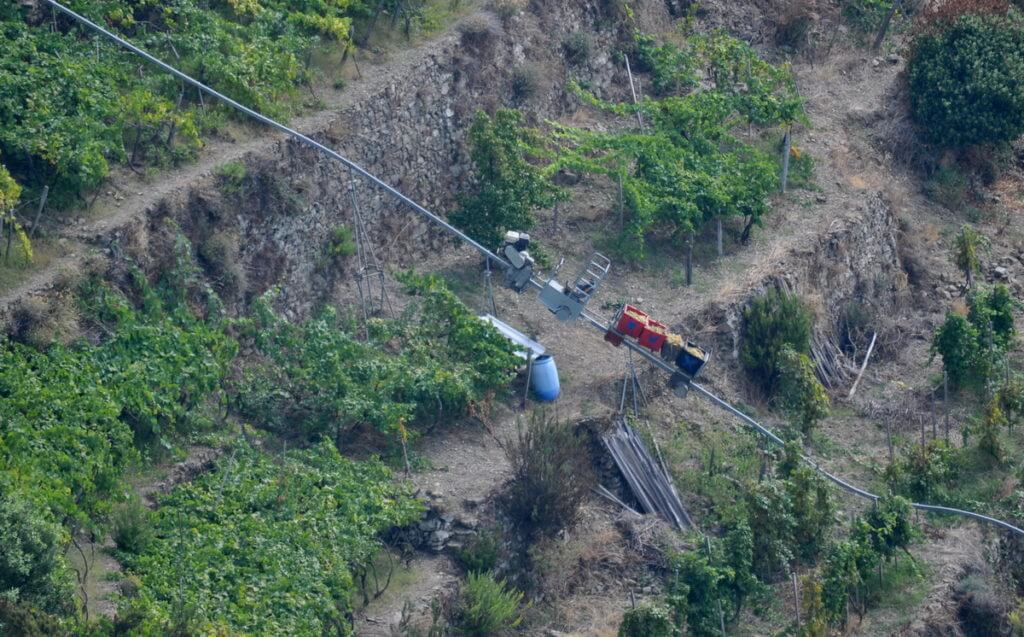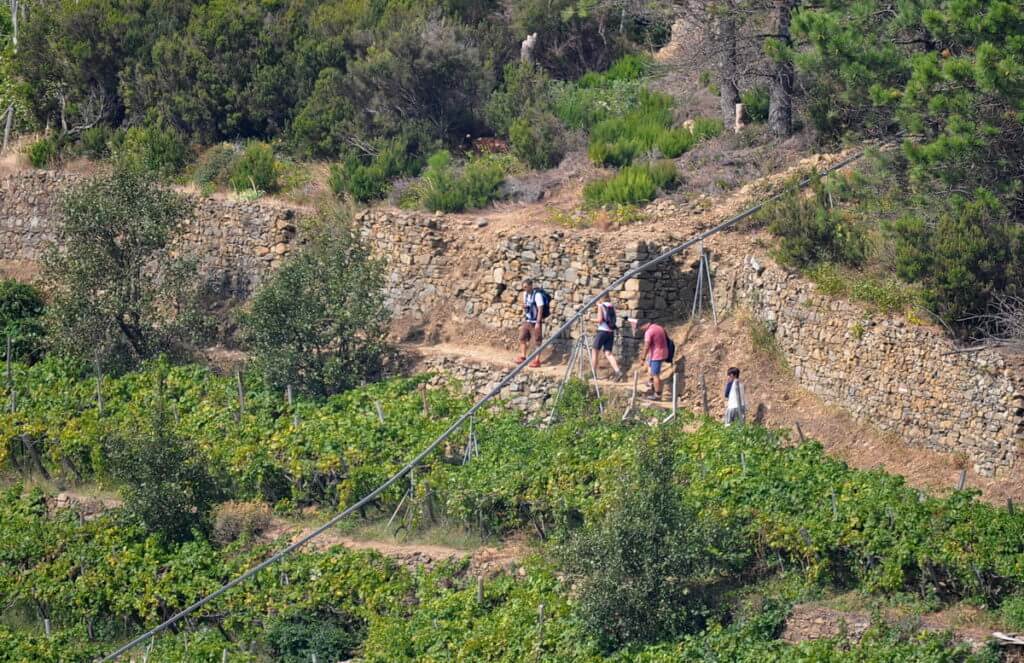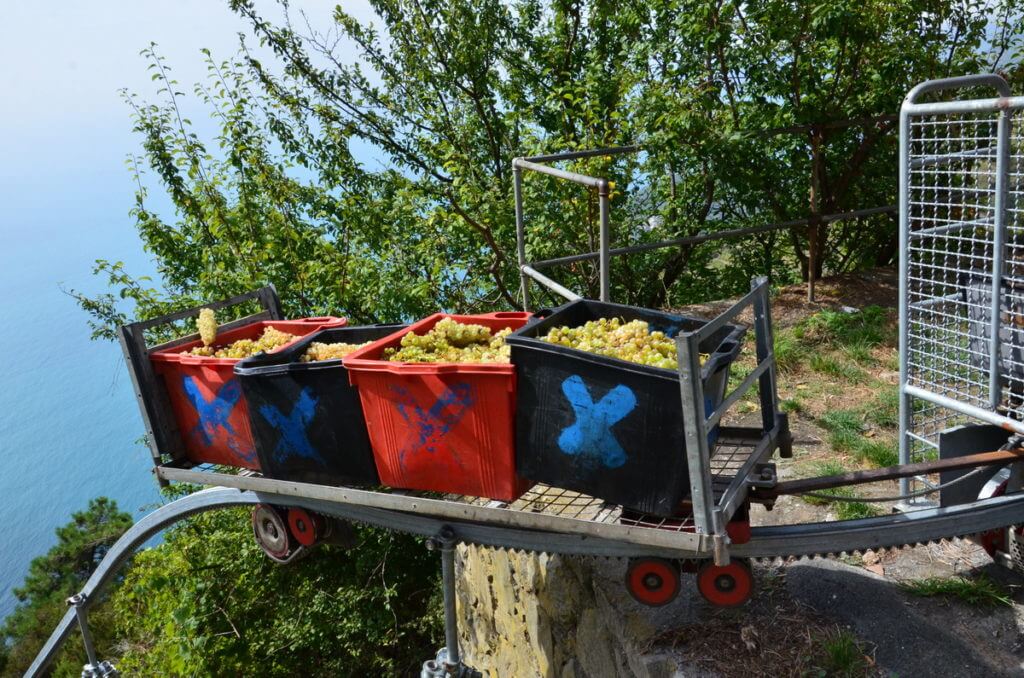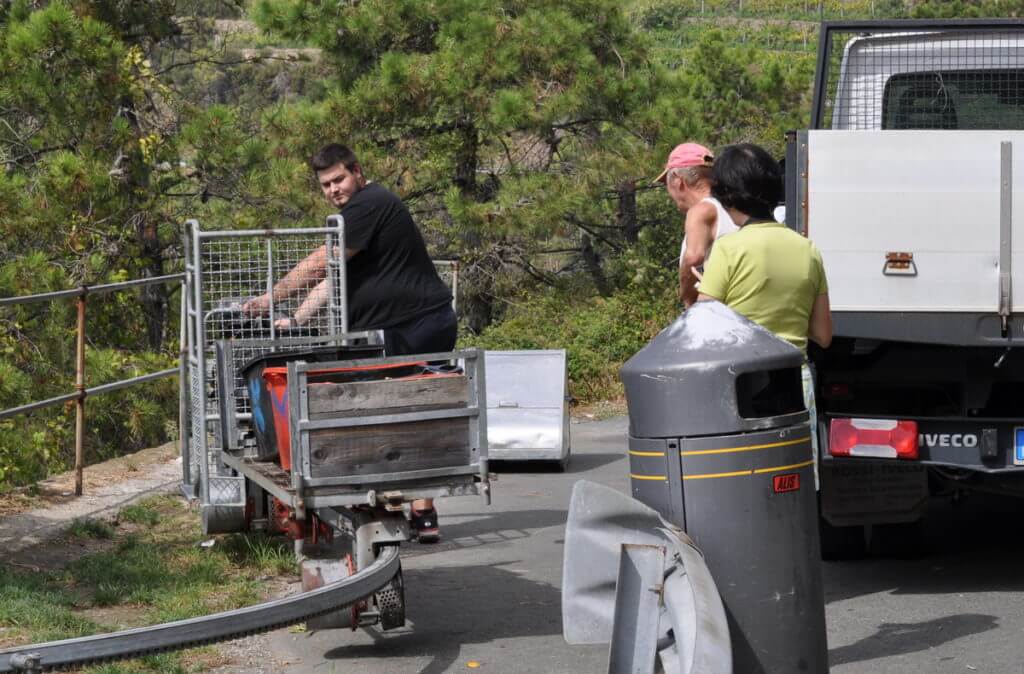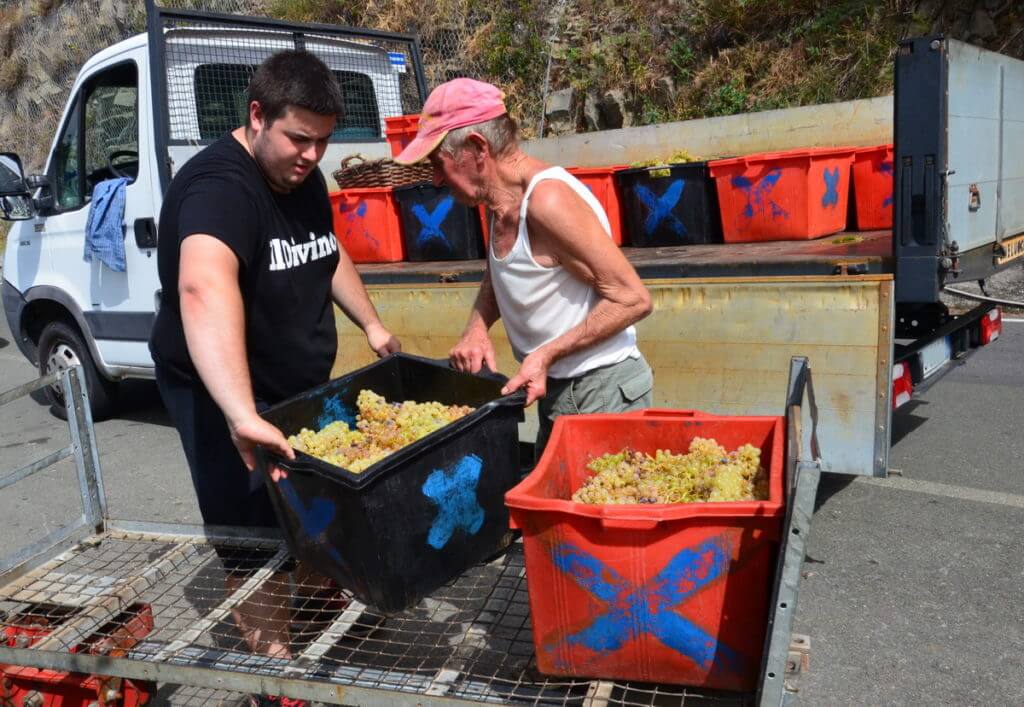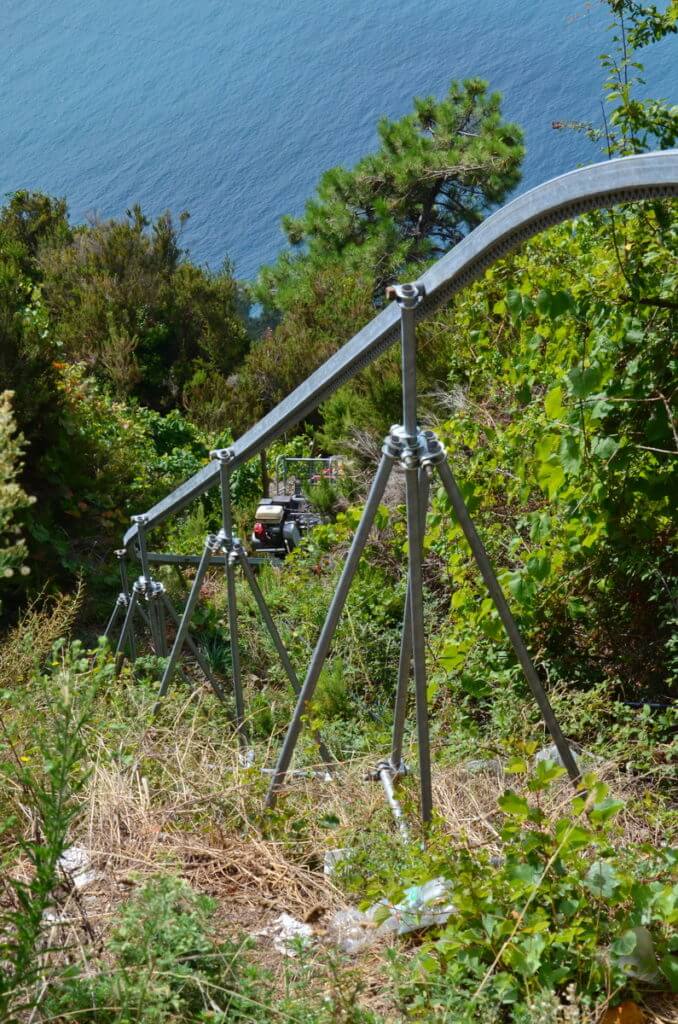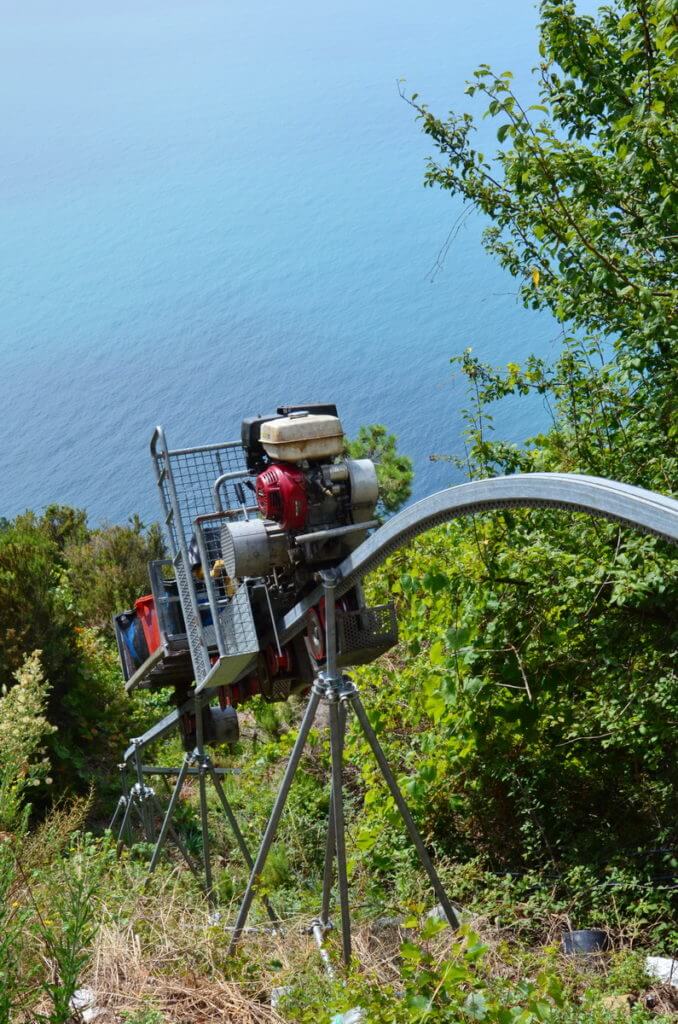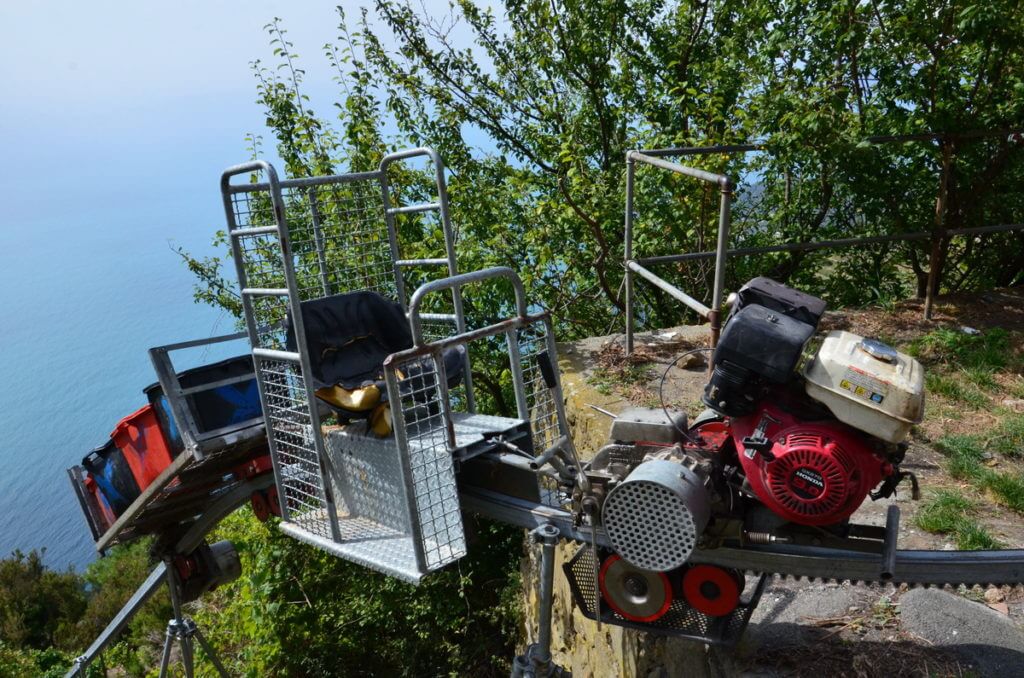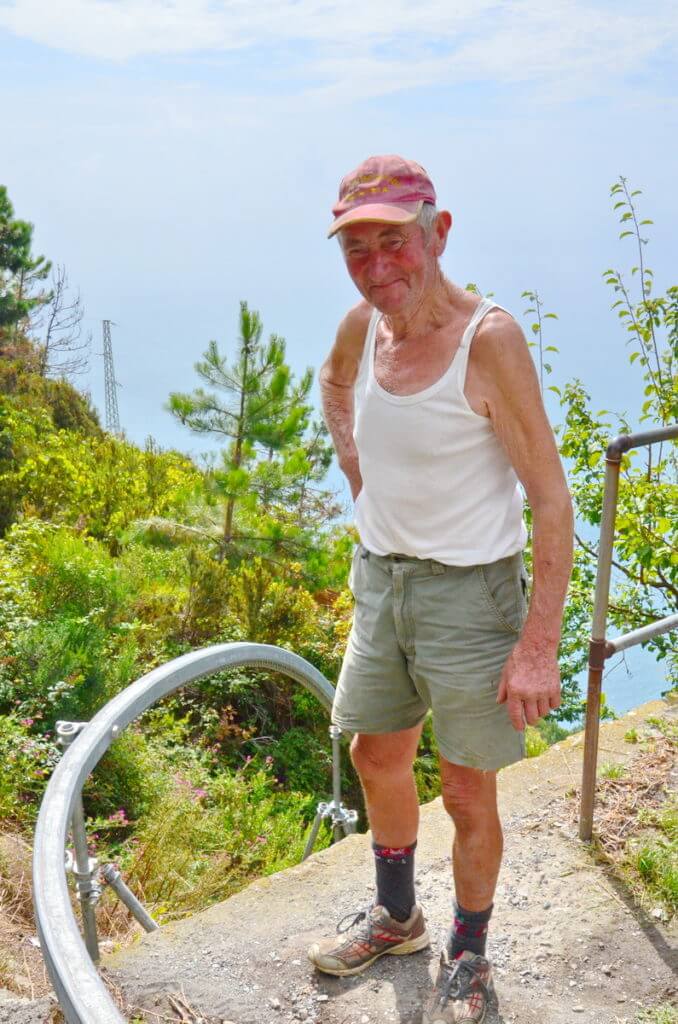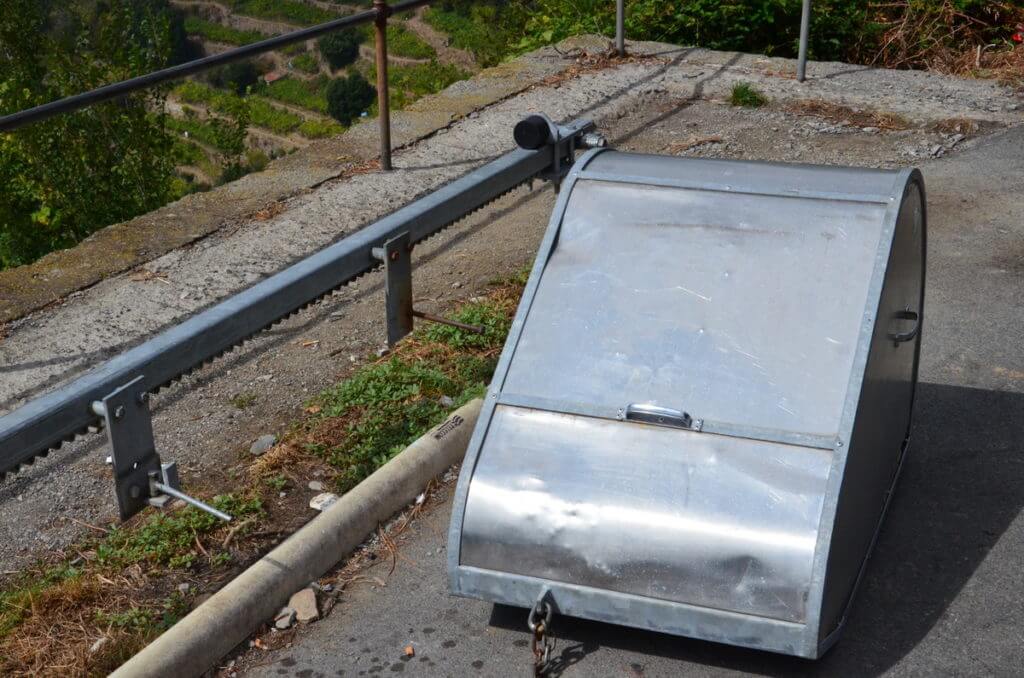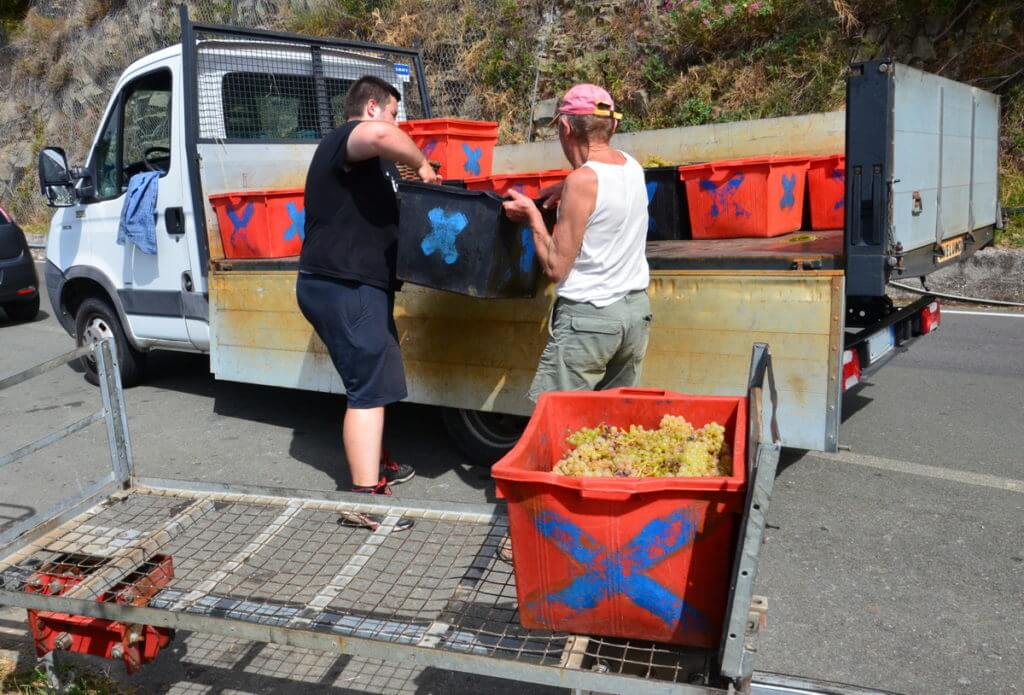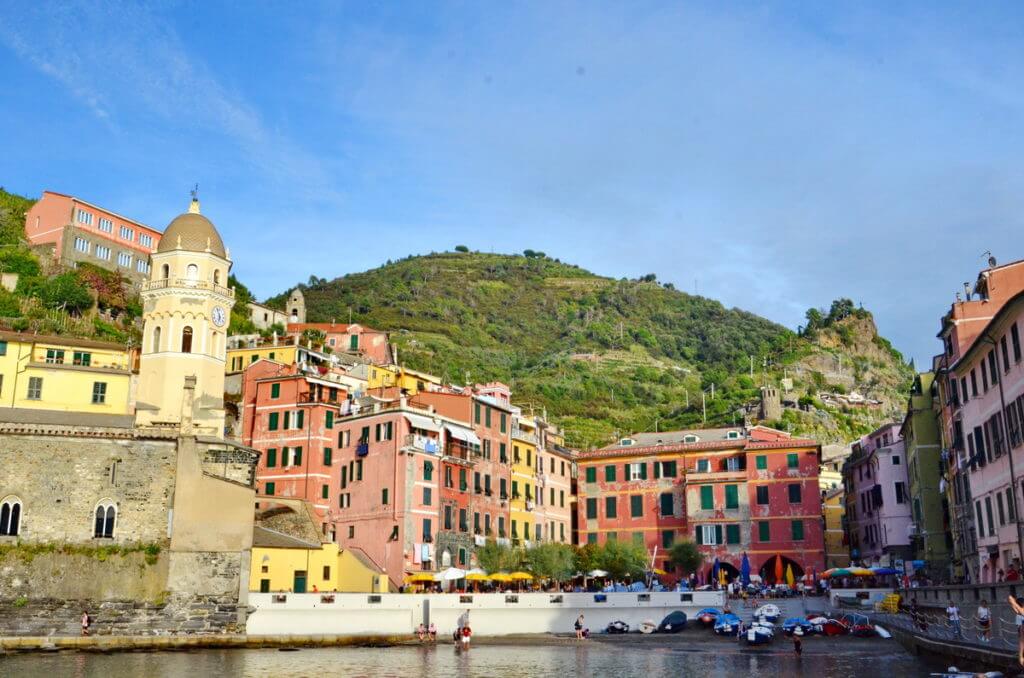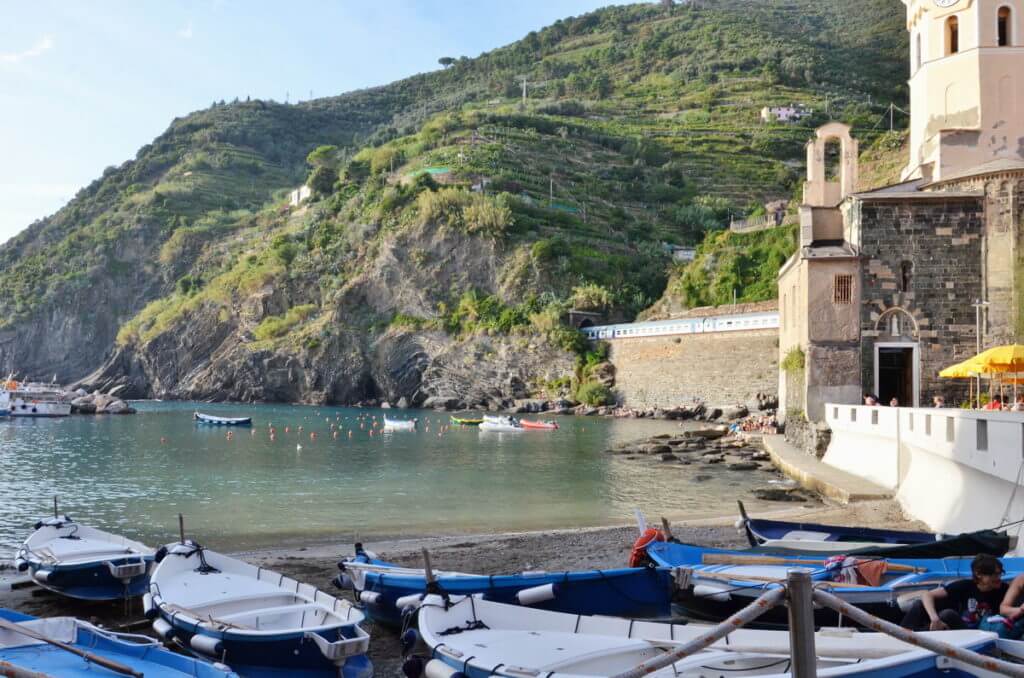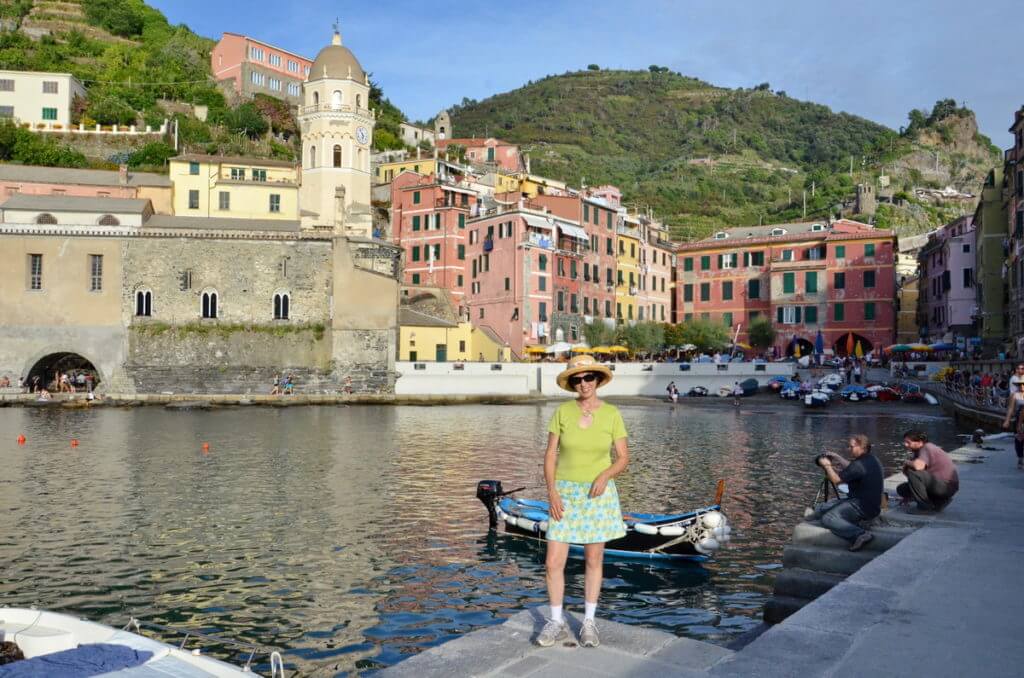The Cinque Terre Grape Harvest by Monorail Amazed Us

As Bob and I motored our way through Cinque Terre, we marveled at the vast mountainsides transformed into arable terraces filled with vineyards. It was hard to comprehend how grapes harvested at the bottom of the slopes could be transported up to the top until we came upon a grower operating a monorail train for just that purpose.
Riomaggiore is the first and most southern of the five villages along Cinque Terre’s rocky, wild coastline. Dating from the early 13th century, the village has been known for the wine produced in its local vineyards. Even from Highway SP51, Bob and I could see vineyards rising towards the sky on the steep slopes that cuddle this town.
When we had the opportunity for closer views of some terraced vineyards, it was with fascination that Bob and I admired the incredible network of drystone walls holding back the earth.
The extensive trail system that links the five villages of Cinque Terre conducts hikers through silent pine forests, over craggy coastal rocks and into quaint, colourful villages. Hikers also are obliged to stroll across many of the neatly cultivated vineyards.
Bob and I saw trekkers on one such path flanked by drystone walls. Even from afar, we could appreciate the arduous work that went into building these muretti, the drystone walls, that support the narrow terraces.
The extensive system of low, drystone walls in Cinque Terre has been compared to the Great Wall of China in its grandeur and scope. It is what led UNESCO to recognize this region as an extraordinary cultural landscape. It was designated as a UNESCO World Heritage Site in 1997.
Bob and I continued towards Manarola while Riomaggiore’s church grew smaller in our rear view mirror. Looking out over the Apennine Mountains, it seemed to us that not only large wineries but also individual landowners had grape vines growing…
on terraces that have been painstakingly carved into the rugged, vertiginous mountainsides. Winemaking has been a crucial part of Cinque Terre’s history, and for centuries, the entire economy of the region revolved around the sale of wine.
The wines produced in Manarola were portrayed in Roman writings as high-quality, and special mention was made of one wine known as Sciacchetrà, an amber-coloured dessert wine.
Sciacchetrà is very pricey because the grapes, once harvested, must be dried for 40 days on straw mats in the many, breezy rustic stone cantinas that sprout from the hillsides.
It takes 20 kilograms of fresh grapes to yield 7 kilos of dried ones from which a wine maker extracts one single bottle of Sciacchetrà. Once fermented and bottled, the wine must age for between 6 and 30 years depending on the vintage.
It was near Corniglia that Bob and I started to notice the complicated system of fields and gardens that bisect the terraced slopes. The whole scene reminded us of farming practices that we saw employed in the Andes Mountains of Peru.
Nearly every family in Cinque Terre bottles its own private stock of wine. Grapes are still harvested by hand because it is impossible for machinery to operate on the steep slopes and narrow terraces.
Pickers hoist wicker baskets laden with ripe grapes onto their shoulders before bounding up steep stone steps incorporated into the drystone walls. Sometimes they must carry the baskets for miles in order to reach the collection point at the top of a mountain slope.
Terraces connected by ladder-like steps still sacrifice a corner or two for rustic stone sheds that probably house tools and farm implements carried down by vineyard workers.
There are about 5,000 residents living in Cinque Terre, and today, approximately 700 of them belong to a local cooperative winery.
Over the past 20 years, they and some independent grape growers have installed miniature cogwheel railways that snake through the vineyards to be loaded with grapes by the pickers.
Bob and I had been noticing elevated racks crisscrossing many of the terraced slopes but didn’t really know what they were for.
When Bob and I rounded a corner of the road near Corniglia, we no longer needed to ponder the matter. To our amazement, a series of plastic bins seemed to materialize out of thin air when it popped up over the brink of a steep incline carried by a monorail.
With his truck pulled off at a curve in the town road, a man and his son stood at the ready to unload the bins laden with ripe grapes.
Seeing how their muscles strained under the weight of the ripe fruits drove home the idea that vineyard workers who carry wicker baskets up the slopes must be in topnotch physical condition.
Bob and I were so excited to watch the rack-and-pinion railway in action.
Even before we could see it, the gas-operated monorail was heard as it chugged and clanked its way up the mountainside from lower elevations.
This innovative system of moving the ripe grapes to collection points is designed specifically for use on steep grades.
It runs on a toothed rack rail that engages with the cog wheels or pinions on the train.
Though we didn’t get the name of the workers, they were more than happy to let us observe their work and examine the workings of the train.
Sitting on the sidelines was another “railway car” used to transport tools up and down the slopes.
Often, a person will ride the rails as a means of scaling the terraces. The miniature railway might seem rickety, but the trenino (little train) has certainly eased the job of many vineyard workers.
Vernazza, the fourth town of the five in Cinque Terre, has another claim to fame besides its beautiful square surrounded by colourful houses.
It is believed that the handsome fishing village lent its name to the variety of grapes grown in the area, Vernaccia.
Little did we know that San Gimignano, a town we visited a couple of days earlier, was responsible for making Vernaccia wine famous. Vernaccia grape vines were transplanted from Vernazza to San Gimignano in the 1300s, and Tuscany, being such a well-known and fashionable wine district, brought Vernaccia wine to the attention of the world.
It was in the village of Vernazza that we ended our tour of Cinque Terre. As Bob and I savoured a glass of local wine overlooking the limpid turquoise water of the Ligurian Sea, we reflected on all we had seen and learned. We felt enriched by the beauty of the iconic scenery and our new understanding of the grape growing in this region.

